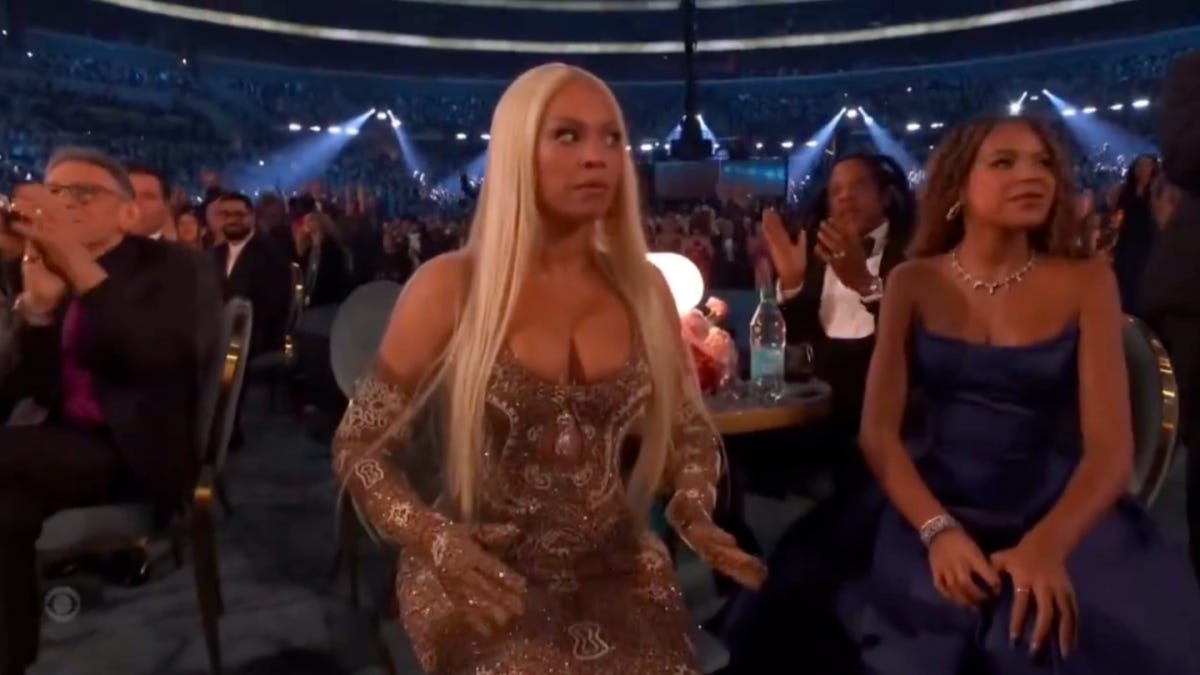Grammys add ‘traditional country’ category following Beyoncé's win
The Recording Academy has made a distinct change to its Country Album category — a change that is raising eyebrows online among Beyoncé fans.
The Recording Academy has made a distinct change to its Country Album category — a change that is drawing attention online.
The 68th Grammy Awards will feature the renaming of the Best Country Album category, which will now be called Best Contemporary Country Album. The Best Traditional Country Album will be a new addition to the award show as well.
Social media users have called foul on the switch up, claiming the move was intentionally made following Beyoncé’s historic win as the first Black artist to win Best Country Album at the 67th Grammy Awards for ‘Cowboy Carter.’ That win upset some country music fans, with singer John Rich branding the February ceremony as a “clown show” and the Country Music Association Awards completely snubbing the album.
“Best Traditional Country Album. How subtle,” quipped journalist Brooklyn White-Grier.
“That ‘Cowboy Carter’ win really pissed folks off huh? Way to move the goalpost,” wrote culture reporter Njera Perkins.
“Beyoncé won Best Country Album, so they had to rename/create new categories like Best Contemporary Country Album + Best Traditional Country Album in an attempt to differentiate from “traditional” (white) country music,” copywriter Mikeisha Vaughn said. “Go racism!”
“I’ll be generous and point out that there’s a Grammy for Best Traditional R&B Performance (no album award though),” writer Ronse Esangbedo said. “That being said, I think it is HIGHLY suspicious that (The Recording Academy) only decided to create a Best Traditional Country Album after Beyoncé won Best Country Album.”
Recording Academy CEO Harvey Mason Jr. told Billboard that the proposal for the two new categories was submitted previously several times before it passed this year. The new categories “[make] country parallel with what’s happening in other genres,” he explained, pointing to the other genres which separate traditional and contemporary. “But it is also creating space for where this genre is going.”
Traditional country now focuses on “the more traditional sound structures of the country genre, including rhythm and singing style, lyrical content, as well as traditional country instrumentation such as acoustic guitar, steel guitar, fiddle, banjo, mandolin, piano, electric guitar, and live drums,” the 68th Grammys rulebook explains.
A prominent music executive who asked to remain anonymous due to their involvement with the Recording Academy believes the changes are very clearly due to Beyoncé’s impact on the music industry.
“I would say that there’s a very clear through line, even if it may appear to be coincidental. When there was controversy about ‘Renaissance’ and “Break My Soul” being in the dance categories and ultimately winning, they immediately created a Best Dance Pop Recording category the very next year,” the executive explained.
“Now, the same thing has happened again. There are probably some country purists in power that aren’t happy with her winning Best Country Album — especially after she was snubbed completely from the CMAs — and suddenly the country album category is being divided into two categories,” they continued.
“Ultimately, it’s just a testament to her own impact and legacy, no matter how irritating it might be on the surface that people want to move the goalposts. I’m optimistic that this will be positive for the breadth and diversity of country music — and the Grammys — in the long run.”



I have always said that that music industry wears its racism with great pride. That explains why SZA can release a pop album and Billboard, the Grammys, and Rolling Stone consider it R&B, while Justin Bieber can release an R&B album and those same organizations consider it pop. It’s because those terms aren’t really genre classifications as much as they’re racial designations. “Pop” and “R&B,” as understood by the music industry, are euphemisms for “white people enter through the front door” and “Black people enter through the back door.” These are Jim-Crow-era-water-fountain conditions and the music industry remains one of the spaces where segregation is openly operational and enforced.
genres are a funny little concept, aren’t they? 🤔